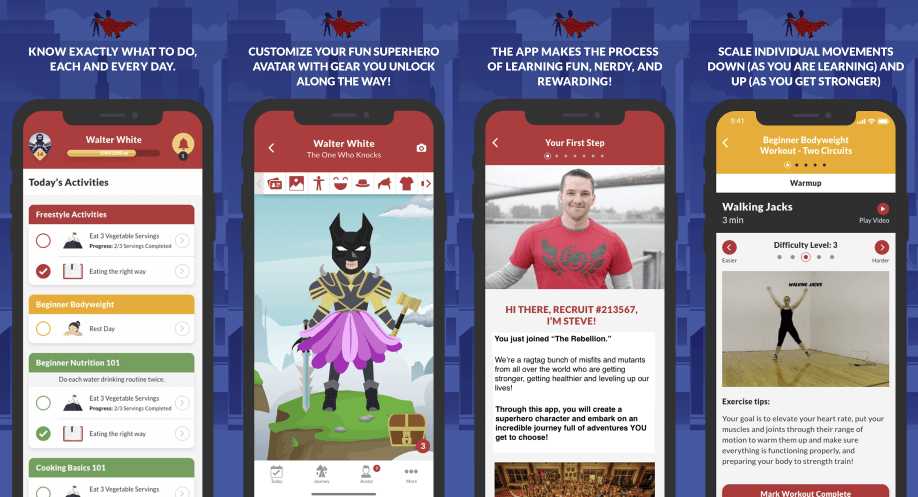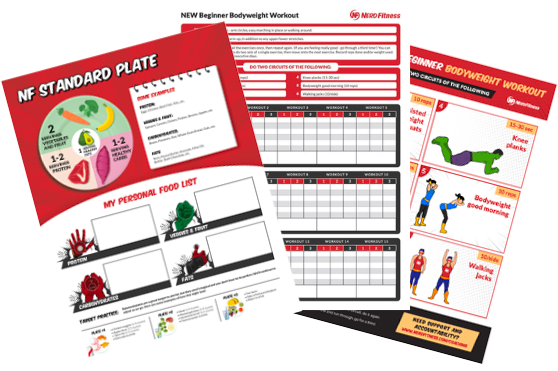
If you’re currently trying to lose weight, you might be asking yourself:
“Which diet is right for me?”
What’s the best diet for weight loss?”
They’re great questions, both with many different variables to consider.
Today, we’ll unpack it all for you.
We focus on proper diet and nutrition extensively in our 1-on-1 Coaching Program, but we’re gonna tell you everything you need to know below too.
Here’s what we’ll discuss in answering “What’s the best diet to lose weight?”:
- How to eat for healthy weight loss
- Which diet will help me lose weight?
- Why can’t I stick to a diet?
- Which diet is the most effective in weight loss? (The 80% solution)
- What’s a “good enough” diet? (Steve’s 80% solution)
- Will being a vegetarian (or vegan) help me lose weight?
- How to pick the diet that’s right for you (Next steps)
It’s a lot to cover, but DON’T PANIC.
We’ll get through it together using science, stories from our very own community, and one too many pop-culture references:

Let’s get started.
How to Eat For Healthy Weight Loss

#1 – Eat fewer calories than you burn every day.
#2 – Want to also be healthy? Eat mostly real food.
Full stop.
Want to KEEP the weight off?
Add #3: Do those two things consistently for a decade.
This solution will get you like 90% of the way towards a killer physique and a consistently healthy checkup at the doctor.
Mix in the right training and you’ll be 99% of the way there.
The problem is that pesky things like “reality” and “genetics” and “human behavior” keep getting in the way.
It’s why everybody goes on diet after diet after diet, gaining and losing the same 10-50 lbs.
Most people can only stick with a diet for a few weeks before they’re so miserable that they can’t wait to go back to how they were eating before.
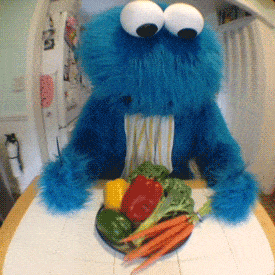
They count calories and allow themselves to eat “health food” like low-fat ice cream and low-fat chips and just two Oreos. These people are so nutritionally deficient—eating calorie-heavy, unfulfilling foods—that they struggle to stay under their allotment of calories for the day. D’oh.
To make matters worse, even if they’re counting calories, they’re probably misreporting their food and overeating without realizing it.[2]
This is why people get so dang frustrated when they go on a calorie-restricted diet, track their food, and still don’t lose weight. The only explanation must be that their bodies must have slow metabolisms.
Yes, some people can do well with calorie counting long term – and I do believe EVERYBODY should count calories for at least a week to educate themselves about the food they are eating – but I think it’s only part of a solution that has plenty of room for error.
Watch this quick video of a person who believes she has a slow metabolism[3].
It turns out the exact opposite is true. Crap.
Despite everything stacked against us, Nerd Fitness is FULL of success stories of people who have lost 100s of pounds and kept the weight off. Here are a few dramatic ones (click on the images to read their full stories):
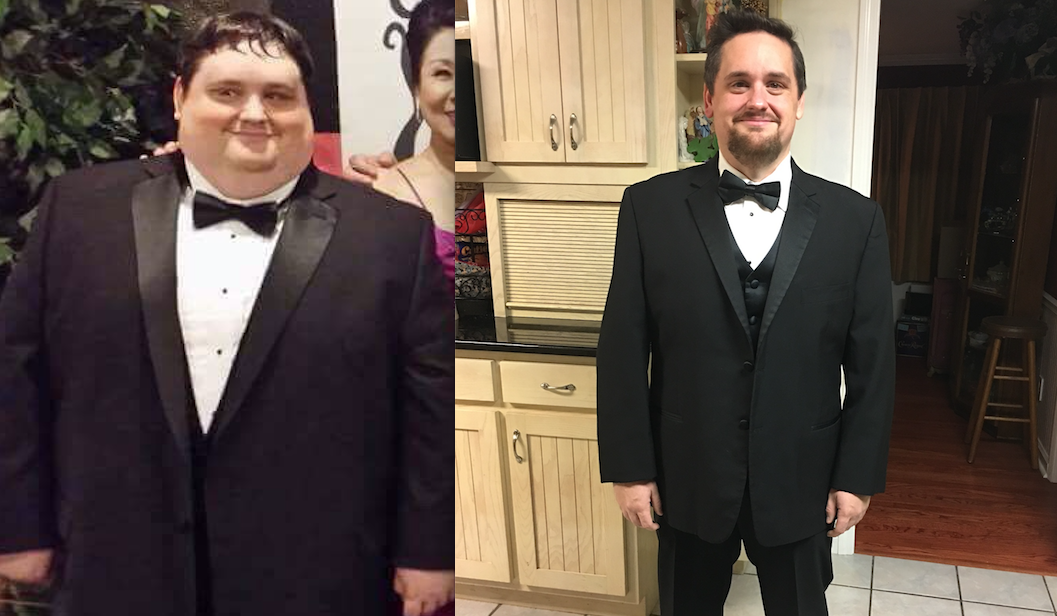
What gives?
Nerd Fitness doesn’t just tell you what to eat. Any Google search can tell you that.
Though we help there too.
At Nerd Fitness, we’re helping you learn HOW to think about eating too.
And that’s the difference-maker.
Which Diet Will Help Me Lose Weight? (Mental Models for the Win)

The Nerd Fitness community is full of ridiculously smart people. Smart people that have tried in vain to lose weight for years or decades.
It’s because we’re fighting a brutal, uphill battle.
For many of us, food is way more than just fuel:
- It’s a coping mechanism.
- It’s how our moms showed us love.
- It’s what we turn to when we’re happy or sad.
- It can provide us with a small bit of happiness during an otherwise boring day.
Add in the fact that unhealthy food has been designed in a laboratory to be so delicious that it must be consumed in mass quantities, and trying to eat “just a few” of something is nearly impossible.
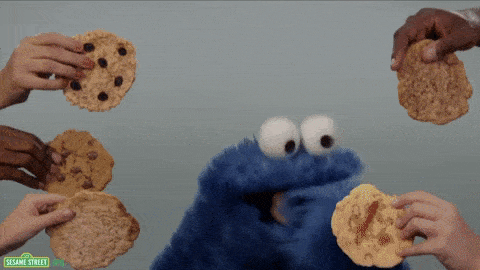
Next, add a dash of “I am obsessive and if I start to track calories I’m going to drive myself insane,” “even if I track my calories I’ll probably underreport how many calories I eat by at least 20%,” and “there is so much information that this all appears so overwhelming, so it’s a lost cause.”
This is why Mental Models are so useful (hat tip to my friend Shane over at Farnam Street Blog who taught me about Mental Models). I’m gonna borrow the concept here for nutrition.
Enter a MENTAL MODEL DIET:
- Paleo Diet: If a caveman didn’t eat it, neither should you. “Okay, what would a caveman eat? Probably things that grow in the ground, so vegetables and fruit, and also animals. They wouldn’t eat candy or bread or pasta or drink soda.”
- Keto Diet: Keep your carb intake under 5% (or more extreme, 10 grams, for example) of your total calories so your body has to burn fat for fuel instead of carbs and sugar. “Time to learn how many carbs are in everything I eat, and start tracking.”
- Slow Carb Diet: Eat legumes, protein, veggies. “Time to learn how to make food that only fits the slow-carb model. At least until cheat day!”
- Intermittent Fasting: Only eat between 12pm and 8pm. Occasionally do 24-hour fasts. “Okay, so I’ll just skip breakfast. That’s one less meal I have to think about.”
In each of the above options, there are a few similarities that make them such trendy/popular diet choices.
For the sake of simplicity, we’re going to hold off on digging into the health benefits that apply to a small percentage of the population on certain diets (Keto to treat epilepsy, Paleo/Keto for Hashimoto’s Disease, identifying a gluten intolerance, etc), we’re going to focus on the reasons MOST people pick these diets.
They’re simple to comprehend and will probably help you lose weight:
#1) They all will result in you eating fewer calories (usually).
If you follow the Paleo Diet, you are eliminating some of the most calorie-dense, nutritionally deficient, unhealthy foods out there. No more soda, no candy, no bread, no pasta, no sugar, no dairy.
If you follow the Keto Diet, you must track your carb intake, which means you’re going to also learn how many calories are in everything else you eat. You’re also essentially eliminating an entire macronutrient from your diet that’s notorious for keeping people overweight.
If you follow the Slow Carb Diet, you learn about which foods you can eat and which foods you can’t eat: yes to beans, no to dairy and grains. Like Paleo or Keto, you’re eliminating massively unhealthy foods from your diet, which will most likely result in weight loss.
If you do Intermittent Fasting, you’re eliminating 1/3rd of your meals for the day! Let’s say you normally ate an 800 calorie breakfast, 800 calorie lunch, and 800 calorie dinner. If you SKIP breakfast, that means you could eat larger lunches and dinners (1000 calories each) and still end up eating 400 calories less per day on average. That’s enough for 3-4 pounds of weight loss per month!
#2) You can answer “YES” or “NO” to adherence.
Sure, it would be great if you could weigh every element of food that you eat, and track each meal in a spreadsheet and KNOW you’re tracking each calorie and macronutrient correctly.
And for some people looking to get to bodybuilder levels of body fat, this level of perfection is required.
However, for the rest of us, working regular jobs, with kids, and lives, this shit is wayyyyy too much.

So these mental models are so damn helpful because they can simplify the overly complicated and allow us to get out of our own heads.
These Mental Model Diets require compliance and consistency. In each instance, there’s a very specific answer you can say every day, and a question you can ask yourself with each meal.
As our favorite green Jedi Master once said:
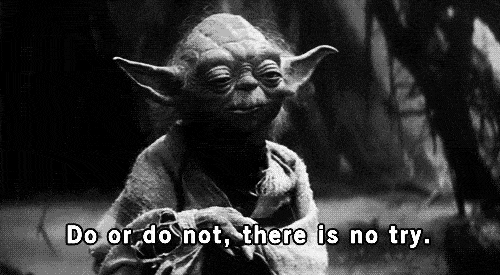
- Paleo Diet: “Would a caveman eat this?” Yes or no.
- Keto Diet: “Am I in ketosis?” Yes or no. You can even pee on strips to see if you are in ketosis.
- Slow Carb Diet: “Did I only eat slow-carb foods today?” Yes or no.
- Intermittent Fasting: “Did I skip breakfast today? Did I stop eating after my feeding window?” Yes or no.
In each of these examples above, it removes ALLLLLLLL of the fluff, simplifies the heck out of our complex physiology and a complex problem. And it allows us to stop fooling ourselves.
With the mental models above, we have rules and a framework within which we can operate. It starts with black and white YES or NO questions we can ask.
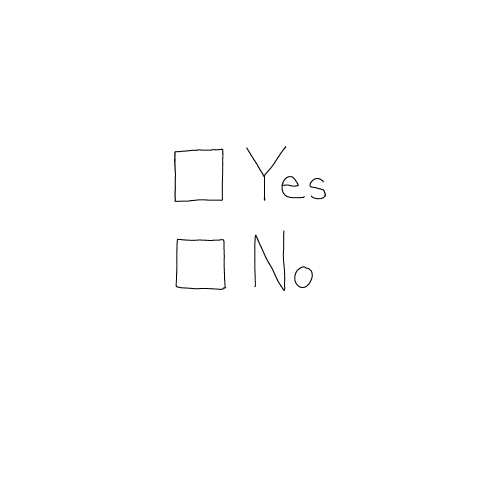
We know what (or when) we can and can’t eat.
It’s a lot easier to fool ourselves when we are sneaking bites of cookies, having an extra roll at dinner, drinking a larger soda during a long night at work, eating some of our kid’s Halloween candy, and overeating while absentmindedly watching television.
When the rules are black and white, yes or no, there’s no place to hide.
Which means we need to get our act together if we’re going to stick with something.
We start to understand the quality and quantity of things we are putting in our pie holes. We start to dig into our relationship with food.
And in MANY cases, we start to lose some weight (again, see #1 above); this starts to make us feel better about ourselves. And we chase that feeling.
We create a positive virtuous cycle where we lose weight, get complimented, wake up not feeling like crap, look forward to exercising, and over time we become permanently changed, healthier, happier people.
In a similar vein, The Whole 30 Diet works for many people (“I only eat Whole 30 foods for the next 30 days”), but it will not result in long term changes if somebody goes back to their original unhealthy diet after the 30 days are up.
Temporary changes = temporary results.
#3) They can be done incorrectly, are tough to stick with long term, and won’t work for everybody.
Depending on our genetics, upbringing, lifestyle choices, addiction to sugar, relationship with food, what foods satiate us, etc., some of these options might work better for us than others.
As mentioned above, if ANY of the above nutritional strategies are done temporarily, they will result in temporary changes. This is how the majority of people go through life: gaining and losing the same 15-30 (or 50, or 100) pounds as they go on a diet and off a diet.
It’s a rollercoaster.

And not the good kind of rollercoaster with flips and corkscrews and probably involving Batman. It’s more like one of those rickety old wooden coasters that ruins your back.
Those rollercoasters suck, and so does putting your body through crazy weight-loss extremes, up-down, yes-no, yo-yo.
Although these Mental Model diets can help people lose weight, they are often done for short time periods to get quick results.
And that’s only if people can actually stick with them long enough to get results!
Why Can’t I Stick to a Diet?
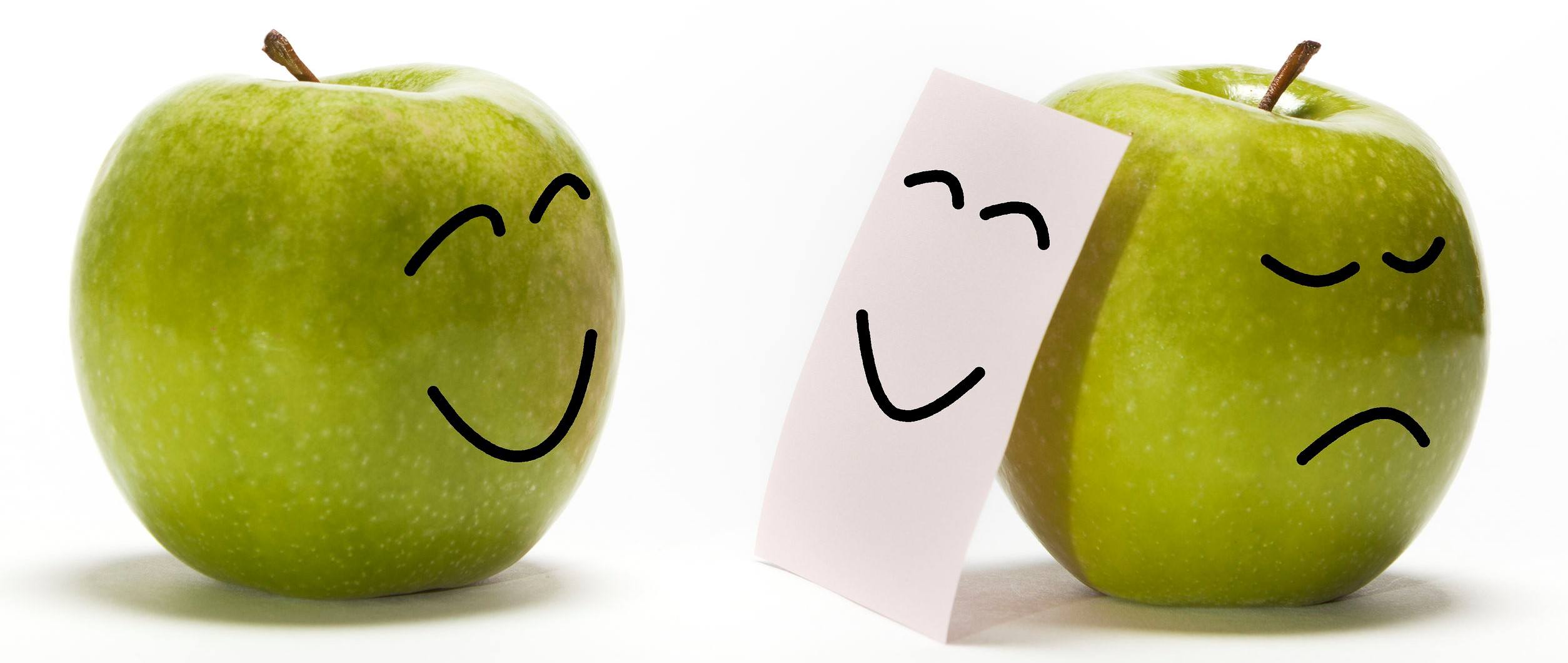
There are two main reasons why these diets won’t work for you.
- Some of them are more strict, have more rules, and require you to be more militant in your approach.
- Even if you are strict in applying the rules, you can STILL do the diets incorrectly and gain weight because of this whole concept of thermodynamics.
Don’t get mad at me. Get mad at science.[4]
MOST PEOPLE GROW FRUSTRATED BY POPULAR DIETS BECAUSE:
#1) You Can Do These Mental Model Diets Incorrectly:
Paleo: I know people who “go paleo” but eat just as many calories as they did in the past: they are eating paleo cookies, buckets of dried fruit (soooo much sugar and carbs), sweet potatoes, and so on. This person will be frustrated when they don’t lose weight.
Keto: If you go Keto but eat 5,000 calories per day, you’re gonna put on weight. Do this while sitting on your ass not doing heavy strength training, and that weight will be all fat.
Intermittent Fasting: If you do intermittent fasting but eat 2,000 calorie lunches and dinners, you’re gonna put on weight. Hell, I put on probably 30 pounds while doing IF, which was my plan.
Slow Carb: If you go slow-carb but eat 6,000 calories of beans and other slow-carb worthy foods, you’re gonna gain weight (and have extreme flatulence).
#2) Sticking with these Mental Model Diets for the long haul can be tough!
The Paleo Diet and the Keto diet often come up dead last when it comes to a “List of Best Diets.”[5]
Now, the people writing those lists certainly have agendas, are trying to deal with the general population, adherence, a number of other factors, and more. In addition, there just haven’t been enough long term studies on some of these newer diet strategies.
Oh, and factor in anybody that wants to get page views by taking shots and tearing down whatever becomes popular. We’ll call this the “hipster phenomenon.” I look forward to the vitriolic backlash to Keto Diets over the next 3 years.
And you never know who to trust. Coca-Cola famously used to bribe scientists to conduct studies claiming sugar was healthy.

So why the hate for diets that have changed millions of lives and will probably help you lose weight?
The reason these diets have poor compliance is that most people will abandon them within days/weeks after starting them:
If somebody is following Paleo or Keto, they’re gonna go through “carb flu” symptoms as their body has to learn to burn fat instead of carbs for fuel. Their body can revolt against this, making them miserable for days or weeks.
Many give up and go back to sweet, comforting carbs. I imagine this happens to the majority of people.
For others, they might make it past the physiological challenges but still give up on the date. They hate having to be the difficult one at barbecues, they hate weighing food or counting carbs, and find the diets too restrictive to fit into their lives.
Compliance and elimination of certain foods can be really challenging, especially for people with families, who travel for work, and aren’t in control of the lunch and dinner options.
In an EXTREME example of a Mental Model diet done for publicity, a professor went on the Twinkie Diet (he ONLY ate Twinkies) and lost 27 pounds.[6]

Disregarding the health implications of only eating Twinkies, I can’t imagine saying “this is a diet I can stick with for the next decade.”
#3) People think “All or Nothing” and quickly abandon the diet when compliance fails.
If you are somebody who is on a Keto Diet or Paleo, you have a very specific set of rules to follow. If you accidentally slip up:
- Oh crap, that food had more carbs than I realized, I am now out of ketosis and my world has ended.
- Oh crap, I didn’t realize this was dairy. I have now brought shame upon my paleo heritage and must atone for my sins.
Life happens. Shit happens. And with these diets, we dumb humans have this unique ability to take one tiny mistake and allow it to ruin the next decade:
“I ate a breakfast that wasn’t Paleo, today is ruined and so this month. I’ll try again next month (even though it’s only the 5th). Oh, look, a pile of carbs! NOM NOM NOM.”
“I got knocked out of Ketosis, which makes me a loser that can’t stick with anything and I hate myself. What’s the point? Who cares that I was in ketosis and lost 30 pounds. I’ll try again later. Now back to my regularly scheduled program of carbs and carbs and carbs topped with carbs!”
No wonder 60+% of America is overweight! We’re surrounded by calorie-dense, nutritionally-deficient foods designed to make us overeat.
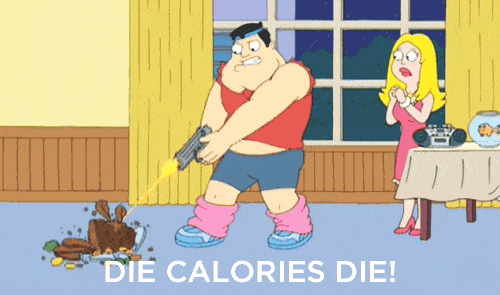
We’re also surrounded by diet plans and products that promise fast results with no effort. We sabotage ourselves by thinking “99% complaint” is a failure and thus it’s a quick slide back to “0% compliant.”
It’s for these reasons I LOVE the IDEA of the Mental Model Diets above, but know that they’re not for everybody. They’re actually not for most people.
I think they can be a valuable starting point to help somebody simplify their decision-making process and educate themselves about the food they’re eating.
These Mental Model Diets can help people identify certain nutritional deficiencies or imbalances somebody might have, or unknown allergies.
They can help people identify sugar addictions, gluten intolerances, emotional triggers for food, and other valuable information to uncover.
And as previously mentioned, some of these diets even have serious health benefits for certain conditions (Keto has been used to treat epilepsy, for example).
But let’s stick with the general population and keep things simple.
For somebody that is very overweight, following one of the Mental Model Diets can be a huge boon and momentum builder. They can lose lots of weight early on, and build off this success to beget further success.
I also think long term compliance is really difficult for 95+% of the planet.
This is why the Paleo Diet isn’t for me. Nor is Keto. Or slow-carb. And although I have been Intermittent Fasting for close to 5 years, I still don’t mind eating breakfast or brunch occasionally because it fits for me.
I want the solution that is pretty good. That gets me results. That fits into my reality.
This is the rough philosophy behind our 10-Level system which you can download as a free PDF when you sign up in the box below, which allows you to be damn good most of the time! Simple rules you can follow, and increase the challenge as you build momentum.
- Follow our 10-level nutrition system at your own pace
- What you need to know about weight loss and healthy eating
- 3 Simple rules we follow every day to stay on target
What Is the Most Effective Weight Loss Diet? (The 80% Solution)

You are a real person who lives in the real world and thus must deal with this thing called reality.
Sucks, I know.
We have to learn to make a Mental Model diet fit into our personal reality:
If you work in a candy store or a pastry shop, trying to go full Paleo 100% of the time is going to be impossible. You’re setting yourself up for failure, because you’re expecting your reality to be different than it is.
If you’re married to somebody who loves to cook Italian food, cutting out pasta is the first step towards divorce.
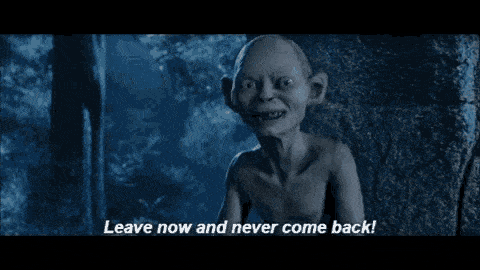
If you have kids, only keeping Keto foods will not win you any “Parent of the Year” awards. And you can kiss that “#1 Dad” mug goodbye.
If you can’t have “just one” of something, don’t fool yourself into trying to be disciplined enough to have “just one.” It’s actually why I pay extra money for small cartons of Goldfish Crackers and/or small cans of soda. It makes it easier for me to treat these things like…well, a treat and less like a staple of my diet.
You need to educate yourself about the food you eat. You need to identify the mental models that simplify your decision-making process when it comes to food.
And you need to pick the level of adherence that aligns with your goals:
It’s why I wrote about how I’m “Paleo-ish” in the past. For some people, they start Paleo and settle into a “good enough” mentality that still has guardrails.
It’s why our “Beginner’s Guide to Healthy Eating” is one of our most popular articles.
It’s why thousands have joined Nerd Fitness Prime for our 10-level diet blueprint.
And it’s why our Online Coaching Program doesn’t promote a “one diet fits all” solution. Our coaches have our hundreds of clients track how they’re eating now and then educate them to introduce new rules and challenges from month to month!
We don’t want you to follow a diet for the next 30 days. We want you to follow a nutritional strategy that you can stick with for the next DECADE.
Which means you need a solution that accomplishes three things:
- A strategy that you can follow consistently for 5+ years.
- A strategy that you can track your compliance with.
- If done long enough, a strategy that will help you reach your goal weight/physique.
Following a “pizza, pasta, and soda” diet might be something you can stick with for 5+ years, but it won’t make you reach your healthy weight.
If Keto will help you lose weight but you can’t stick with it for 5+ years, then “strict keto forever” probably isn’t the best strategy for you.
This is why we want rules we can follow, that help us reach our goals, that we can live with permanently.
Think of these rules like bumper lanes in bowling.
You can’t throw it in the gutter (0% compliance), but you have enough guardrails that allow you to still knock over the pins (weight loss).
What’s a “Good Enough” Diet? (Steve’s 80% Solution)

I’ve identified certain mental models and rules that help me make sense of my day without being overly neurotic, still have fun with friends, and ALSO allow me to reach my strength training and physique goals.
Here’s my personal “80% of the time, it works every time” strategy:
#1) Skip breakfast. I don’t eat breakfast. My first feed happens after my 11am workout. Yup, sometimes I’ll eat brunch on a weekend or have a bagel/donut, but that’s rare. I love Intermittent Fasting, it works for me, and I’ll probably do this for the rest of my life.
#2) Eat real food most of the time. I know what real food is. I try to only eat real food. If you hate veggies (as I used to), here’s how I learned to love them. Yup, I still eat rice and potatoes.
#3) Know my calories. I skip breakfast, and I eat the same lunch every day, and I know the basic quantities and calories of foods I normally eat. This means I generally know how many calories I’m eating every day with minimal effort. This is done more strictly if I am targeting certain goals.
Alternatively, we can learn portion sizes, as we cover in our “Healthy Eating” guide:
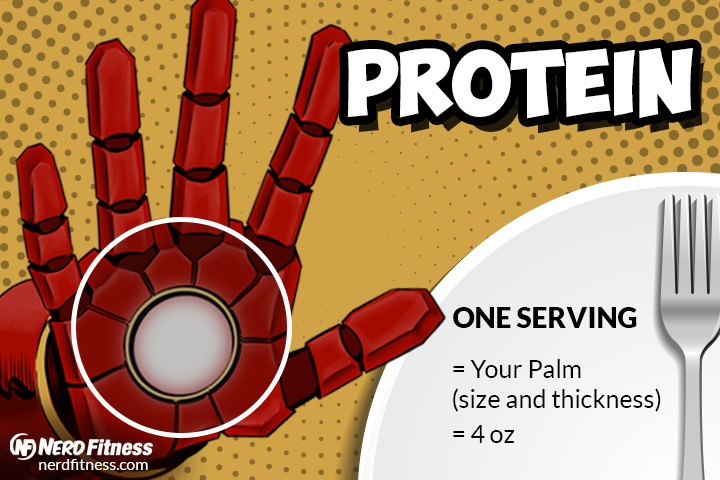
#4) No unnecessary liquid calories. I drink black coffee, unsweet black tea, or water. No soda. No juice (which is pretty much sugar water). I do put whole milk in my powerbomb smoothies, which I drink specifically to help me overeat on training days to build muscle. I still drink whiskey (neat) or good beer when the occasion calls for it!
#5) Never eat two unhealthy meals in a row. If I eat an unhealthy lunch (pizza and wings and beer), I either make my dinner healthy or skip dinner entirely. If I ate an unhealthy dinner, my lunch the next day is going to be healthy. I know myself, and when it comes to momentum-killing, 1 bad meal is a speed bump, 2 is a brick wall.
Before I help you come up with your own rules, I want to address the elephant in the room.

Hi, elephant!
Okay, now that I’ve addressed him, let’s talk about vegetarians and vegans!
Will Being a Vegetarian (Or Vegan) Help Me Lose Weight?

I actually considered including Vegetarian or Vegan mental models in the above sections, as I know we have plenty of plant-based folks in the Rebellion.
Here’s why I didn’t: neither option satisfies Rule #1 (“By following this strategy, you will most likely lose weight”). Allow me to explain.
Yes, as a vegan or vegetarian, you can ask yourself: “Is this Vegan/Vegetarian? Yes or No” (Rule #2), which does make it a mental model in that respect.
However, in order for you to lose weight and be healthier on either mental model, you need to be very aware of the foods you’re eating and how many calories they have—which introduces more complexity.
Pizza, fettuccine alfredo, bowls of sugary cereal, grilled cheese sandwiches, and calorie-bomb burritos can be vegetarian.[7]
Donuts, pasta, and bread can be vegan.
Plant-based? Technically, yes.
Healthy? Ehhhh.

Just like you can do Paleo or Keto incorrectly, you absolutely can be an unhealthy vegetarian or an unhealthy vegan. The same is true of going gluten-free.
Long story short: if you are thinking of going vegetarian or vegan for whatever reason (nutritional, moral, religion, this new person you’re dating is vegetarian, etc.), go for it!
It might work for you! It might not.
It might help you lose weight! It might not.
It all depends on what foods you are eating in addition to being vegan or vegetarian.
So, if going plant-based ALSO helps you educate yourself on what you’re putting in your body, if it helps you make better food decisions, and changes your relationship with food for the long term, and gets you the health/physique results you’re after, great!
KEEP DOING IT!
Just don’t fool yourself into blindly believing what you’re doing is healthy just because you cut out meat without actually analyzing what you’re replacing it with.
If you are vegan or vegetarian and planned on emailing me angry words for not including them as healthy options above, thus concludes my cover-my-ass explanation. We’re cool, right?
Also, yes. I have read the China Study. [8]
Lastly, if you are contemplating moving to a vegan or vegetarian diet, make sure you check out our massive guide “How to Eat a Plant-Based Diet: A Scientific Look at Going Vegan Safely” for tips and tricks to make it work.
How to Pick the Diet That’s Right For You (next steps)

Those are the rules I’ve picked above that fit MY reality. I adjust based on my progress from month-to-month, whether or not I’m making progress in the gym (and in the mirror!).
Here’s how you can determine the best diet for you: Throw the concept of the “perfect diet” out the window and staple this to your forehead: “The perfect diet is the diet I can actually stick with.”
Actually, don’t staple that to your forehead. It’ll be backwards when you look in the mirror and that will defeat the purpose.
Instead, do this – Be a badass scientist:
#1 – Do some research, juuuuust enough to get started[9], and pick the diet or the rules you want to start with. Pick the rules that you can live with. Then, start. Now.

Here are some sample yes/no rules to get you started outside of the mental model diets. Note the difference in challenge/healthiness – pick the ones at YOUR level:
- I can’t drink more than 5 sodas per week (instead of my normal 10). It’s up to me when I drink them.
- I don’t eat fast food Monday through Friday.
- I eat a vegetable with every lunch and dinner.
- Once per week I’ll do a 24-hour fast.
- I don’t drink alcohol on Sunday afternoon through Friday afternoon. Other than that, all bets are off.
#2 – Track your adherence to the diet or rules. It can be very simple (“Yes I was compliant today”/“No I wasn’t”). A spreadsheet, a calendar where you write X’s on the days where you were compliant, an app, a friend you check in with, etc. Your rules can be “Only drink 5 sodas this week,” “eat two vegetables per day,” or “eat under X amount of carbs.” Pick rules that line up with your life.
#3 – Track your progress, assess your strategy. Compare photos, measurements, and/or lifts in the gym at the end of the month. Are you better off than you were 30 days ago? Do you feel like you can stick with the rules for another few months? Were you able to stick to the plan more than 80-90% of the time?
#4) Stay the course, or course-correct:
- Compliant with your rules and you lost weight? Great! Do it again for another month.
- Couldn’t stick with your rules? Great! Adjust your rules to be less rigid so you’re more likely to stick with them.
- Stuck with your rules but didn’t lose any weight? Great! You identified that your rules weren’t aligned with your goals. Adjust them.
#5) Repeat! Forgive yourself if you don’t succeed (each month is a new experiment). Even “failure” gives you information on what diets DON’T work for your situation.
You will need to follow these 5 steps every month for the rest of your life, so better get used it.
That’s what we call “life.”
Because life IS change and chaos.

Success comes from learning to navigate through the muck!
Your body will change in the coming years, and so will your rules. You might get pregnant or go through menopause. You might get an injury or change jobs or discover a food allergy. You might have kids or move cross country or go on vacation.
Each month, do a quick evaluation of where you are. Decide if you need to stay the course or make adjustments.
Do this consistently, and you’ll eventually arrive at the perfect diet FOR YOU. You are a unique snowflake in an environment and situation that is unique to you.
So again, I do not follow a paleo lifestyle. I don’t even recommend Paleo as the option that’s best for everybody.
What I recommend is treating life like an experiment, and using the resources and community here at Nerd Fitness to identify the rules and strategy that works for YOUR reality.
The Mental Models of Paleo, Keto, Slow Carb, Intermittent Fasting, Vegan, Vegetarian, or other eating models may be able to help you get started, and MIGHT even get you results!
But it’s gotta fit your life and ultimately be sustainable to have any real chance at long-term success.
So I recommend that YOU take control over finding the perfect diet for YOU.
Pick a mental model and incorporate it into your life. Lean on your friends or this community for support. Learn from people who have succeeded in the way you want to succeed. Track your compliance and progress. AND KEEP EVOLVING.
This is why I started Nerd Fitness: to help people cut through the crap and start to make progress that can stick even as the rest of their life goes through change.
If you’re somebody who is super overwhelmed or has struggled with yo-yo dieting for years, you’re not alone! This stuff is tough, and finding a way to navigate a constantly changing, chaotic life while following brutally strict rules ain’t easy.
This is why we created three different paths forward. The next step so you determine the “right diet for me.”
Pick the option that best aligns with your goals:
#1) Our 1-on-1 Online Coaching program: a coaching program for busy people to help them make better food choices, stay accountable, and get healthier, permanently.
You can schedule a free call with our team so we can get to know you and see if our coaching program is right for you. Just click on the image below for more details:
#2) Check out NF Journey, our fun habit-building app that helps you exercise more frequently, eat healthier, and level up your life (literally).
You gain access to this app through Nerd Fitness Prime.
#3) Join The Rebellion! We have a free email newsletter that we send out twice per week, full of tips and tricks to help you get healthy, get strong, and have fun doing so.
I’ll also send you tons of free guides that you can use to start leveling up your life too:
NOW IT’S YOUR TURN!
I want to hear from you with regards to these Mental Models and how they fit into your life:
What are your questions that I didn’t address above? I’ll do my best to respond to all comments!
Which Mental Model Diet worked for you?
Which one didn’t?
Let me know in the comments below!
-Steve
PS: Make sure you check out the rest of our Sustainable Weight Loss Content:
- The 5 Rules of Weight Loss
- Why Can’t I Lose Weight?
- Can you Lose Weight and Build Muscle at the Same Time.
- How to Start Eating Healthy (Without Giving up the Food You Love)
PPS: Please don’t do the Twinkie Diet.
###
Photo source: andersonrise © 123RF.com, Olga Yastremska © 123RF.com, antstang © 123RF.com, luisrsphoto © 123RF.com, Ekaterina Minaeva © 123RF.com, Anton Ivanov © 123RF.com, Artem Evdokimov © 123RF.com, Alexander Raths © 123RF.com



